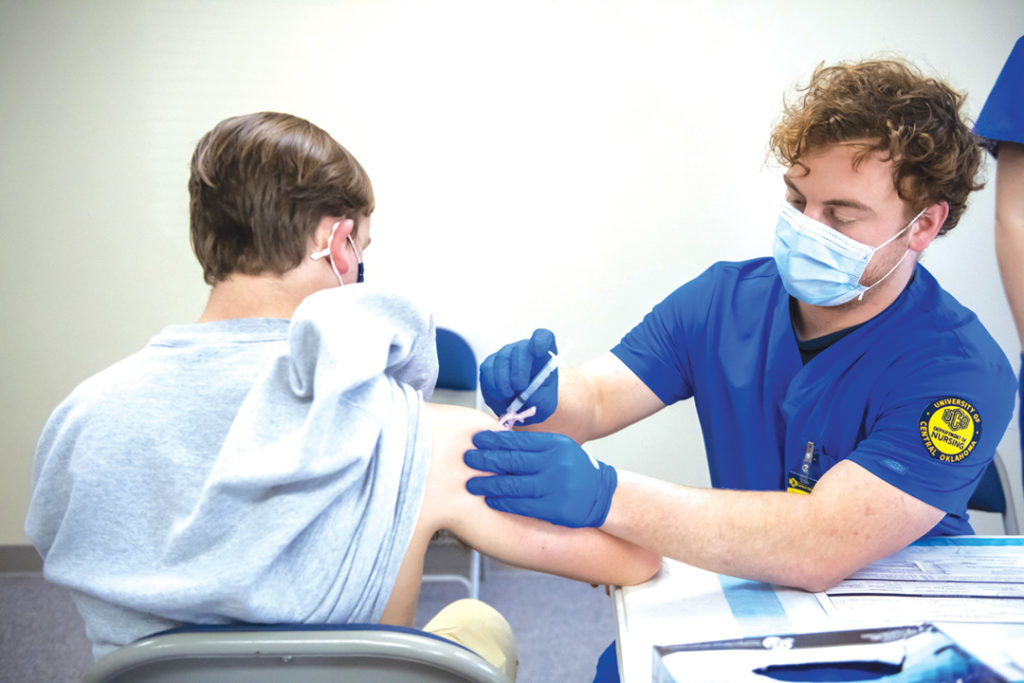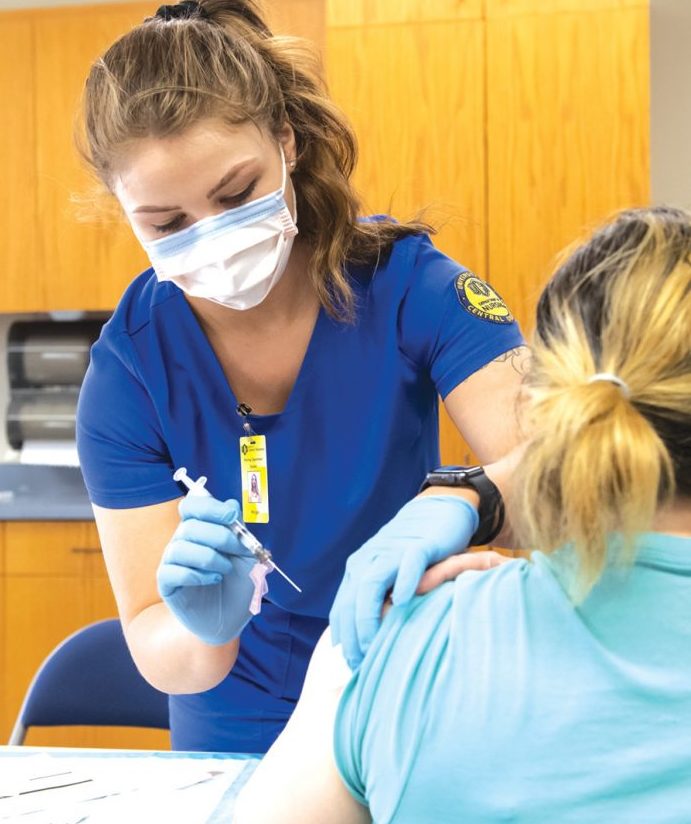Flexibility and opening up new opportunities.
Both are cornerstones of advancing your nursing career through the University of Central Oklahoma’s graduate programs.
Leann Laubach, Ph.D., is an assistant professor and the baccalaureate program coordinator in the Department of Nursing at the University of Central Oklahoma.
She has been teaching at UCO since 2005 and has 22 years of experience as a nurse in the Neonatal Intensive Care Unit.
“They set their own goals so it’s a more personalized experience. It’s not the goals I set for you as the instructor,” Laubach said of the program’s online offerings. “They are related to your ultimate goal for your degree. I think that’s really where we pride ourselves both in our RN to BSN and our master’s program is the personalization of the degree and maintaining that close contact with our students so we can help you be successful in our programs.”
 The master’s degree directly addresses the University of Central Oklahoma’s mission to contribute to the intellectual, cultural, economic, and social advancement of the communities and individuals it serves.
The master’s degree directly addresses the University of Central Oklahoma’s mission to contribute to the intellectual, cultural, economic, and social advancement of the communities and individuals it serves.
The inclusion of 100 practicum hours facilitates the participation of students in transformative educational experiences that directly benefit the Oklahoma City metro community.
Nursing graduate students can choose from two-course pathways: nursing leadership or nursing education. A master’s degree in nursing education will prepare students for academic positions in nursing education or positions in clinical staff education. The leadership pathway allows students to meet individual goals in areas such as health care leadership or administration.
The program is offered at a $15,000 flat fee, even if a student is out of state.
“It’s protecting students against inflation,” Laubach said.
Laubach noted the flexibility of the program benefits students in ways that make it possible to advance their degrees.
“There’s great value in that for someone who maybe is working full time and or has a family, they can carve those hours out in a time frame that works for them. I see that as very valuable for both programs. It makes it so students can do the work when they need to do the work and not at a time that works better for me.”
The recent pandemic has created a divide for many nurses who enjoy their chosen careers but may feel burnt out in their current roles.
“I think now has challenged people to think outside of being at the bedside that whole time,” Laubach said. “I think they are seeking education because they want that change. I think that’s the future of where nursing is going that nurses are realizing they want to stay in nursing but they don’t know if they want to stay at the bedside the whole time.”
There is a definite opportunity for nurses to use their experiences to better the next generation of nursing through education or mentorship.
“I think for nurses who find they are passionate about teaching new nurses it’s an advantage to come back and get an education or leadership degree,” Laubach said. “A leadership degree would allow students to be the clinical leaders, the charge nurse and give them the skillset they need to be successful.”
“The advantage of coming back to get your master’s degree or even your bachelor’s degree is expanding the way you think. The biggest thing is the growth mindset that occurs from the next degree to the next degree.”
The first nursing class from the nursing department at the University of Central Oklahoma graduated in 1972. Since that time, more than 3,500 well-qualified graduate nurses have entered the workforce.
Graduates of this program are known for being some of the best nurses in the state of Oklahoma.
For more information visit:
https://www.uco.edu/cms/academics/nursing/














